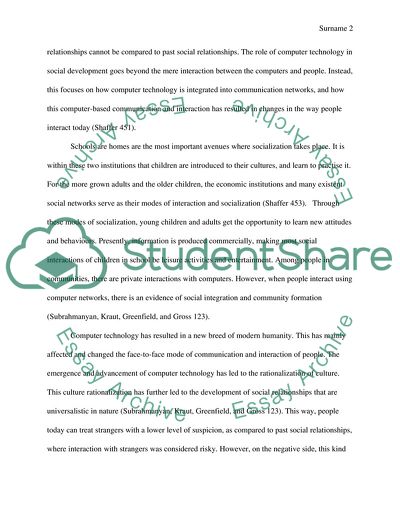Cite this document
(The Role of Computer Technology as a Force of Social Development Essay Example | Topics and Well Written Essays - 1250 words, n.d.)
The Role of Computer Technology as a Force of Social Development Essay Example | Topics and Well Written Essays - 1250 words. https://studentshare.org/technology/1791268-the-role-of-computer-technology-as-a-force-of-social-development
The Role of Computer Technology as a Force of Social Development Essay Example | Topics and Well Written Essays - 1250 words. https://studentshare.org/technology/1791268-the-role-of-computer-technology-as-a-force-of-social-development
(The Role of Computer Technology As a Force of Social Development Essay Example | Topics and Well Written Essays - 1250 Words)
The Role of Computer Technology As a Force of Social Development Essay Example | Topics and Well Written Essays - 1250 Words. https://studentshare.org/technology/1791268-the-role-of-computer-technology-as-a-force-of-social-development.
The Role of Computer Technology As a Force of Social Development Essay Example | Topics and Well Written Essays - 1250 Words. https://studentshare.org/technology/1791268-the-role-of-computer-technology-as-a-force-of-social-development.
“The Role of Computer Technology As a Force of Social Development Essay Example | Topics and Well Written Essays - 1250 Words”. https://studentshare.org/technology/1791268-the-role-of-computer-technology-as-a-force-of-social-development.


